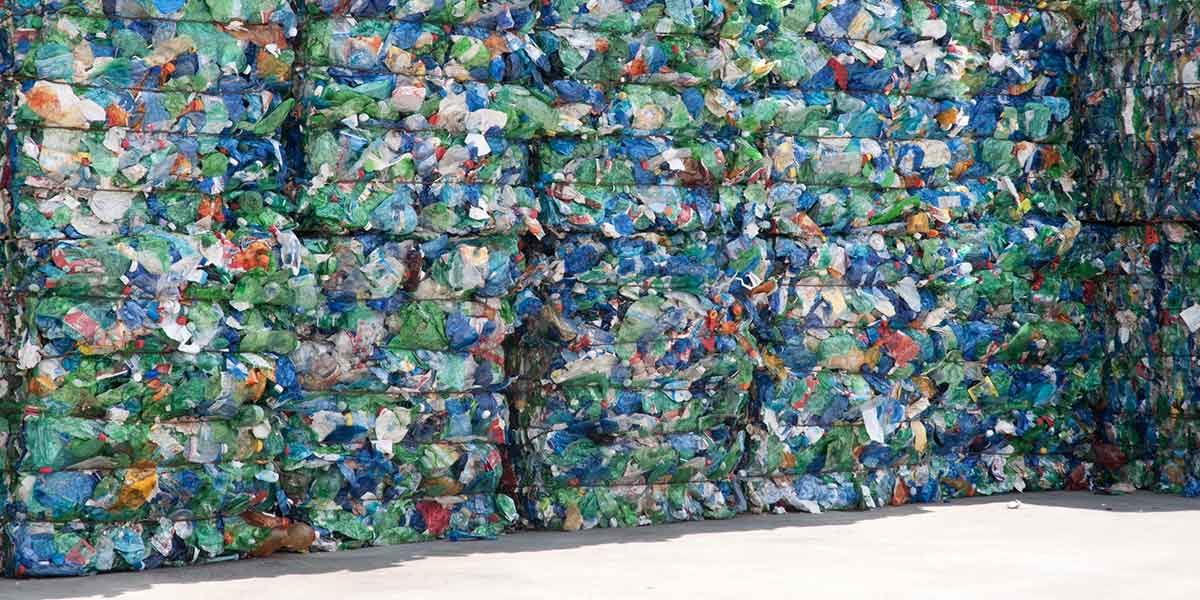How to Recycle Right: The Ins and Outs of Proper Recycling
The good news is that Americans recycle 94 million tons of waste each year. The bad news is that, even with 94% of the U.S. having access to recycling programs, there is still 139 million tons of waste landfilled.
Why aren’t we recycling more often? Well, a big part of the answer is because plenty of people are confused by the rules of recycling. Use this recycling information guide to learn what materials are commonly recyclable and how to recycle them properly.
What Should I Put in the Recycle Bin?
While it’s possible to find a way to recycle nearly any type of material, curbside recycling programs and many city-sponsored collection events typically accept only the most common recyclable materials. Why? Simply because the machines often used by these companies are designed for only the following list of recyclable materials:
- Paper
- Cardboard
- Plastic bottles and containers
- Aluminum cans
- Steel cans
- Glass
How to Recycle Properly
Recycling correctly is the key to the entire process. With single-stream recycling, one mistake could cause an entire recycling bin to be sent to the landfill. While that may seem like an extreme measure, it’s a necessary safety precaution. Improper recycling can lead to contamination of the materials, damaging and clogging of the recycling equipment at sorting facilities and ultimately, higher bills on your end as recycling facilities have to increase their budget to offset the costs of recycling incorrectly.
Never fear. Use the list below for some general rules and guidelines to make sure that you’re recycling correctly.
Keep in Mind: Your city or county solid waste district will probably have specific rules and restrictions that build on this list. Always check with them to ensure you’re meeting their standards.
11 Important Recycling Rules to Follow
- Empty and rinse out drink and food containers. Any remnants can leak onto other materials, making them unrecyclable. Also, if the container is Styrofoam, just toss it.
- Leave your labels on. They will naturally burn or melt off during the recycling process, so there’s no need to waste your time taking them off.
- Know how to handle the lids. If the lids are the same material as the container, leave them on. If they’re different, but still recyclable, take the lid off and toss them both in the bin, unless they break rule No. 4.
- Remember the sticky note rule. Small pieces can break the sorting machines at the recycling facility. If it’s smaller than a sticky note, don’t recycle it.
- Keep plastic bags out of the bin. They will clog the machinery. However, most grocery stores will accept and recycle them for you.
- Take the tape completely off. Tape on boxes is not recyclable. Take it off before you recycle it.
- Take out the plastic pump. Many shampoo and soap dispensers have pumps. While they are plastic, they also contain a lot of pieces that are too small to recycle once separated. Toss the pump, but recycle the bottle.
- Recycle (almost) all paper items. From paper plates to giftwrap, if the paper can be torn, it can be recycled. Just remember to place any shredded paper in a paper bag labelled “shredded paper.”
- Plastic numbers are outdated, but still important. Plastic containers have a number inside the recycling symbol on them. Nos. 1 and 2 are easiest to recycle and accepted curbside. However, most recycling centers sort out your plastic and remove any that can’t be recycled. So, don’t be afraid to toss Nos. 3-7 in your recycling bin.
- Recycle even what can’t go in your bin. Electronics, cell phones, batteries, lightbulbs and many other items that can’t go in your recycling bin can be recycled through specialized programs at various retailers.
- Do your homework. To really learn how to recycle properly, research the specific rules in your location.
![get more tips and tricks with our email newsletter]()
Use Your New-Found Recycling Knowledge Wisely
The benefits of recycling can’t be overstated. Even if you aren’t ready to make all of the changes suggested in this guide, simply making one or two will make a world of difference over time. There’s no time like the present to make a difference in the world.
Interested in learning more about trash and recycling? Learn more about the different landfill types , the ongoing plastic bag ban debate or reasons why your trash may not have been collected.

